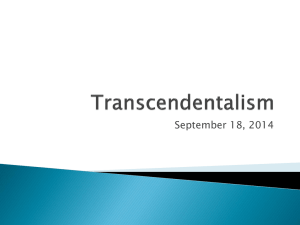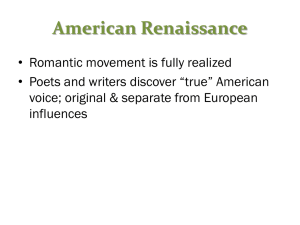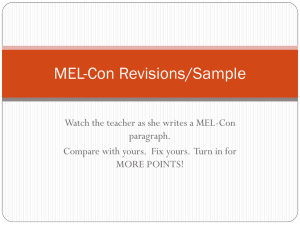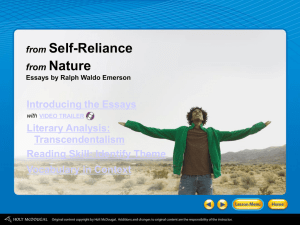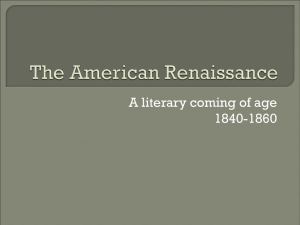View Powerpoint on Transcendentalism, theme, author`s belief, and
advertisement
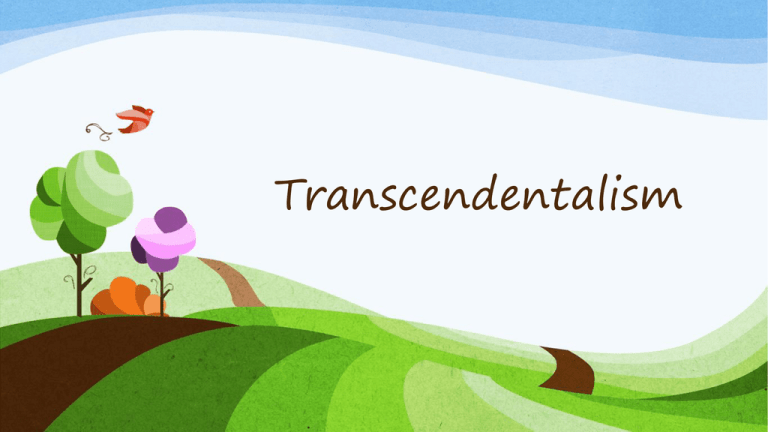
Transcendentalism Bell Work Emerson said that being in nature can make one feel less selfish. What do you think he meant by this? Why might this occur? Do you believe this to be true? Be prepared to share your answers. What are we doing today? Standards: • RL 2 Determine two or more themes or central ideas of a text and analyze their development over the course of the text, including how they interact and build on one another to produce a complex account; provide an objective summary of the text. • RL9 Analyze documents of literary significance for their themes, purposes, and rhetorical figures. • W2b Develop the topic by selecting the most significant and relevant facts, extended definitions, concrete details, quotations, and other information and examples. Objectives • You will learn the definitions of theme, author’s belief, and central idea • You will read literature to identify and analyze theme, author’s belief, and central idea • You will annotate literature to gain deeper understanding Question #1 • What would happen if you were forced to go without any electronics for a week? What good might come from this? Question #2 • Do you express your opinions when they aren’t popular? Why or why not? Do you find it easy to do? Can you give an example? Question #3 • What is your definition of “success”? Question #4 • Would you accept very low pay for a job you loved? Why or why not? Question #5 • What does it mean to be an individual? Is individuality important to you? Do you consider yourself to be an individual? Question #6 • Do think that humans are connected to nature in any way? What is the connection? What is Transcendentalism? (Write this information in your notebook) from Page 369 • Theory that every individual is capable of discovering higher truths on his or her own (rise above) • Belief that people are inherently good and should follow their own beliefs (self-reliance) • Belief that humans, nature, and God are all interconnected Analyzing Literature! (Write this in your notebook) • Theme • The Underlying Message • Author’s Belief • Authors tone/diction • Central Ideas • Smaller messages within the big message; quotable quotes What is the theme, author’s belief, and central idea? Read “Nature” on pg. 373 together “Nature” by Ralph Waldo Emerson Let’s look at it together • Theme: • Author’s belief: • Central Ideas: With a partner, re-read through “Nature” and identify the theme. Author’s belief, and Central Ideas Be prepared to share! “Self-Reliance” by Ralph Waldo Emerson • Page 370 What is Emerson’s theme? • What is he trying to say about life? What’s his message? • What is the author’s belief • What is his tone? What significant words does he use? • What are the central ideas? • What lines jump out to you? Which lines are appealing, likeable, engaging? On your own, read and annotate “Self-reliance,” answering the above questions. Answer questions and follow all directions on your handout. Be prepared to share! Quiz over 2 Emerson essays on Friday! Exit Ticket: • What characteristics of Transcendentalism appeal to you? What beliefs are guiding principles in your life? • Summarize these characteristics/beliefs and explain why they are meaningful to you.




